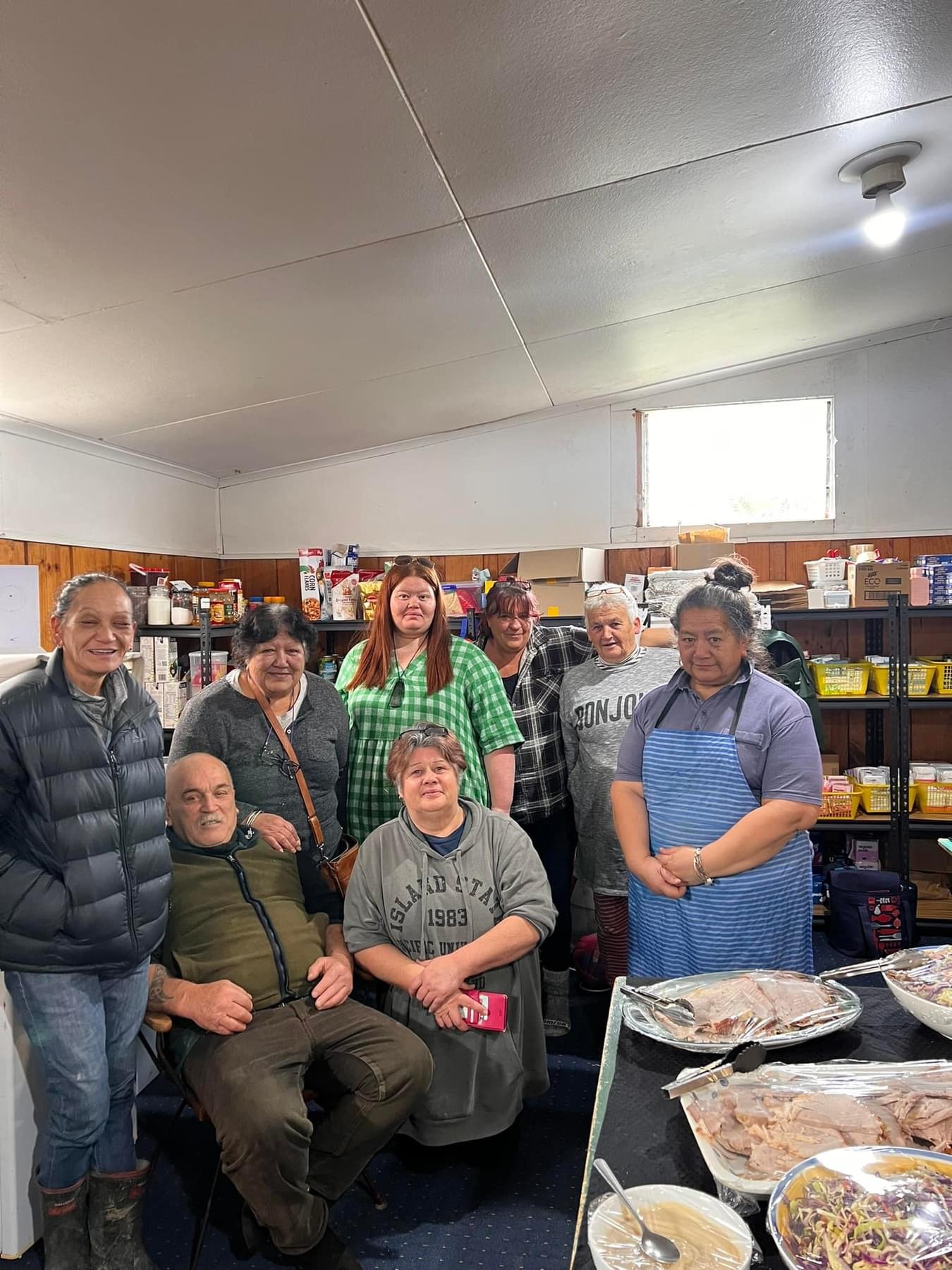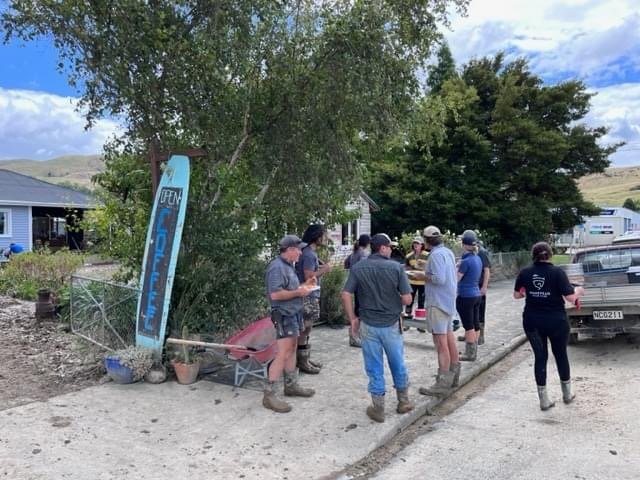
case study three
Navigating Cyclone Gabrielle recovery and reflections on philanthropic partnerships
As part of research undertaken by the Joint Centre for Disaster Research and the launch of the Philanthropy New Zealand | Tōpūtanga Tuku Aroha o Aotearoa Prevention, Readiness, Response and Recovery from Disasters guide, Professor David Tipene-Leach (Pōrangahau, Ngāti Kere) reflects on the challenge and opportunities faced by his hapū community in the wake of Cyclone Gabrielle.
Pōrangahau in Hawke’s Bay is a small, rural township that is close to the coast and has a wider farming community. The negative impacts from Cyclone Gabrielle compounded the existing significant challenges that the Pōrangahau-based Ngāti Kere hapū already faced.
The economic reforms of the 1980s hit the Pōrangahau Māori economy very hard and exacerbated social-economic difficulties for many of the local people, especially Māori. The hapū have also struggled with historical Māori land loss along with a largely young and old population where chronic ill-health is prevalent. Unsurprisingly there were high rates of deferred maintenance and low rates of insurance cover across the housing stock in Pōrangahau, making the impacts of Cyclone Gabrielle even worse for local people.
The Cyclone Gabrielle response in Pōrangahau was broad and generous across the community both in terms of personal time and economic input. Ongoing recovery efforts have exposed fractures within the community, particularly between those with the means to recover and those without, both Māori and non-Māori. Despite these challenges, our community is navigating the recovery process with determination.
In the immediate aftermath of the disaster, the response and recovery efforts by Ngāti Kere were supported by individual koha, the local Mayors Fund and philanthropic organisations. Local hapū organisations swung into action with response efforts immediately and later government agencies became involved in a significant rebuild of uninsured houses. While Māori understand koha (the ancient practice of reciprocal obligations), and are familiar with support from the government by grants, contracts or negotiated Treaty settlements, local hapū had no real prior experience of the open-hearted, one-way philanthropic giving it experienced in the wake of Cyclone Gabrielle.
In the Māori community there is a profound emphasis on relationships, with rangatiratanga (autonomy and self-determination), manaakitanga (generosity and care for others) and utu (reciprocity) forming the foundation of our values. The idea of giving something for nothing, as in the case of philanthropy, disrupts existing values somewhat because rangatiratanga hinges on clearly understanding our place in the world alongside others. A history of colonisation and its fraught extractive dealings have also eroded our trust. This makes complete transparency and a sense of partnership really essential.
We invite philanthropic organisation to connect and engage with our marae and hapū – this is the level where a genuine understanding of our wider needs is to be gained. Māori communities seek partners who are transparent about their intentions in our world and those who are willing to assist with initiatives determined by the community itself. These relationships are much bigger than disaster response. We welcome partnerships with philanthropic organisations that are built on trust and understanding of our hapū needs and goals that result in empowerment for our hapū.
About David Tipene-Leach
Professor David Tipene-Leach (Pōrangahau, Ngāti Kere) is a public health physician who works as Research Professor of Māori and Indigenous Research at the Eastern Institute of Technology (EIT).

Getting kai ready for the Pōrangahau community following Cyclone Gabrielle

Pōrangahau community gathering to support the cleanup following Cyclone Gabrielle

